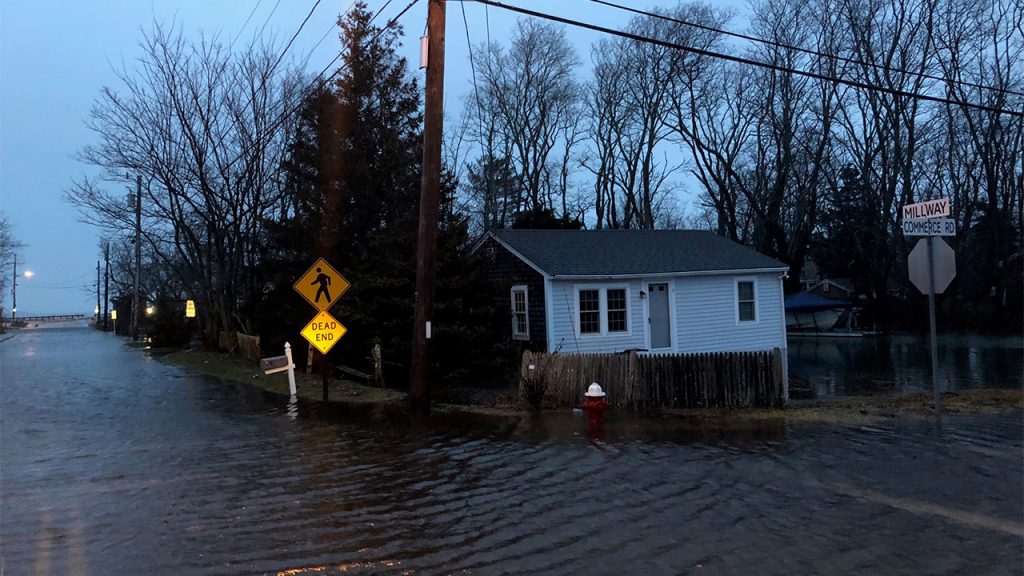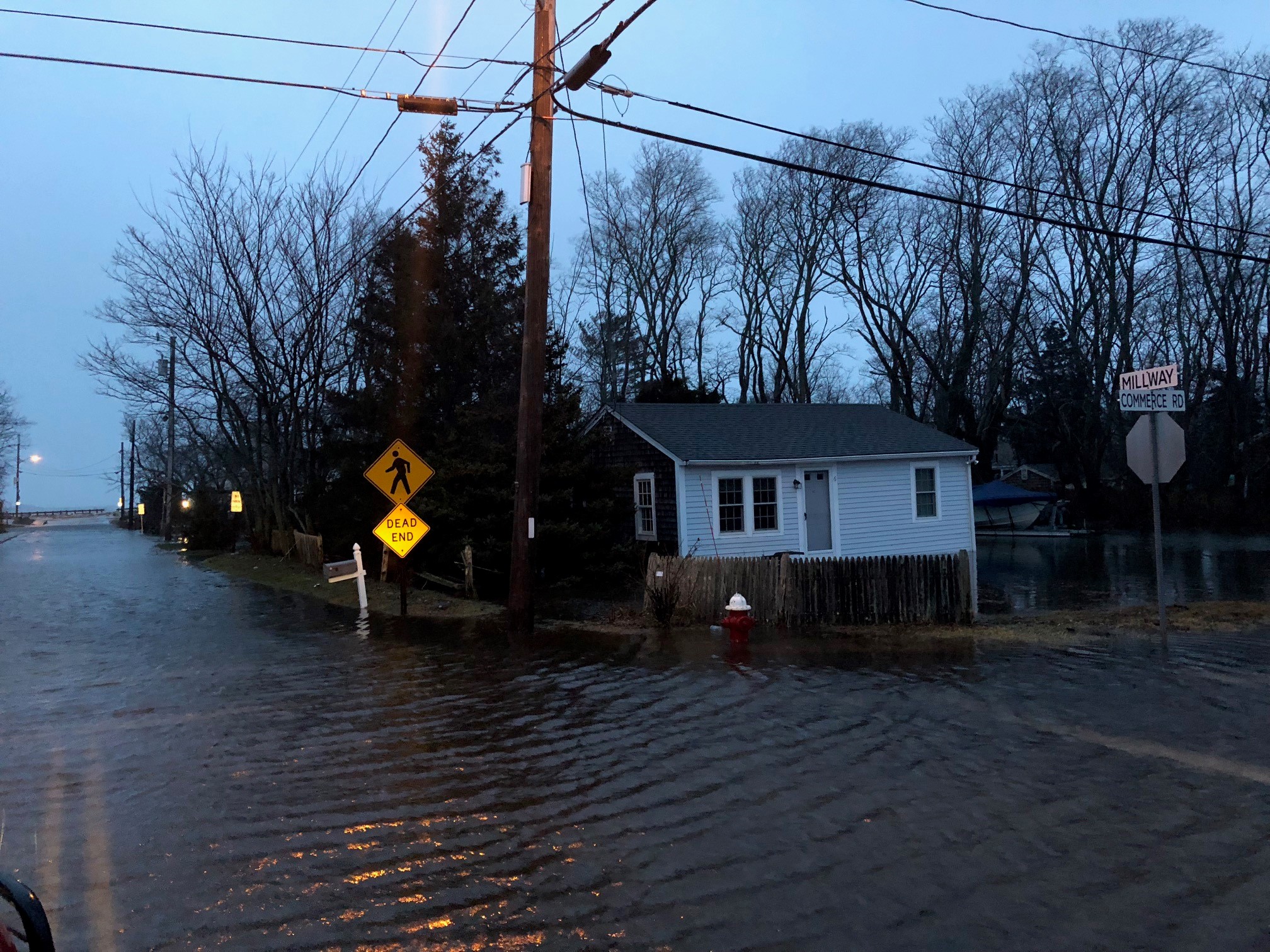Staff Assists With State, Federal Officials on Model Floodplain Bylaw


Throughout the course of the past year, Extension staff from Woods Hole Sea Grant/Cape Cod Cooperative Extension worked with the the state floodplain office at the Department of Conservation and Recreation (DCR) and the Federal Emergency Management Agency (FEMA) to create an updated model bylaw ensuring compliance with the National Flood Insurance Program (NFIP). Most communities in Massachusetts have opted to voluntarily participate in the NFIP to enable access to lower-cost flood insurance for residents and businesses. In exchange for having access to this federally provided flood insurance, communities must agree to adopt certain provisions within their bylaws. Most of these requirements are covered by the statewide building code or Wetlands Protection Act, but several must still be adopted locally. This new bylaw covers these components that must be adopted locally.
The project came about as part of a Network Visioning implementation grant to Woods Hole Sea Grant. Woods Hole Sea Grant’s Floodplain Specialist manages a regional Community Rating System (CRS) program, a FEMA program that rewards advanced floodplain management and risk reduction actions with discounts on NFIP flood insurance. To participate, communities must meet certain minimum standards, including bylaw standards. To help communities with this, the Floodplain Specialist decided to create a model bylaw both to meet minimum standards and to encourage communities to adopt higher standards that would result in improved flood safety and higher flood insurance discounts. Through communications with FEMA and DCR, it became evident that the whole state could benefit from a bylaw covering the minimum standards, so the three programs opted to work together to create this bylaw.
The model bylaw was released in mid-September, with trainings provided by DCR and FEMA in early October. All communities must adopt this new minimum-standards bylaw either when they need to adopt new flood maps or at their next compliance visit with the state or FEMA. On the Cape, communities will adopt the new bylaw as they apply to the CRS. The Woods Hole Sea Grant Floodplain Specialist will work with communities to ensure they adopt all of the necessary language and change any policies necessary to implement the new bylaw.
The next phase of the project will be released in Spring 2021. This will include a suite of higher standards that, if adopted, will help a community reduce their flood risk over time and help to earn credit in the Community Rating System. This second phase will be compiled based on activities credited in the CRS and examples of higher standards adopted in other communities. The suite will also include incentive ideas that may not be permissible as a regulation but can encourage desired actions. Specifically, Massachusetts communities cannot have local regulations that are stricter than the statewide building code, but these incentives can encourage adherence to higher standards, such as higher freeboard (building higher above expected flood levels).
The model bylaw project is a great example of Sea Grant’s ability to work across networks and tap into the best available resources, as well as work with appropriate partners to anticipate needs and ensure resources are available to a wide geographic range of stakeholders.
